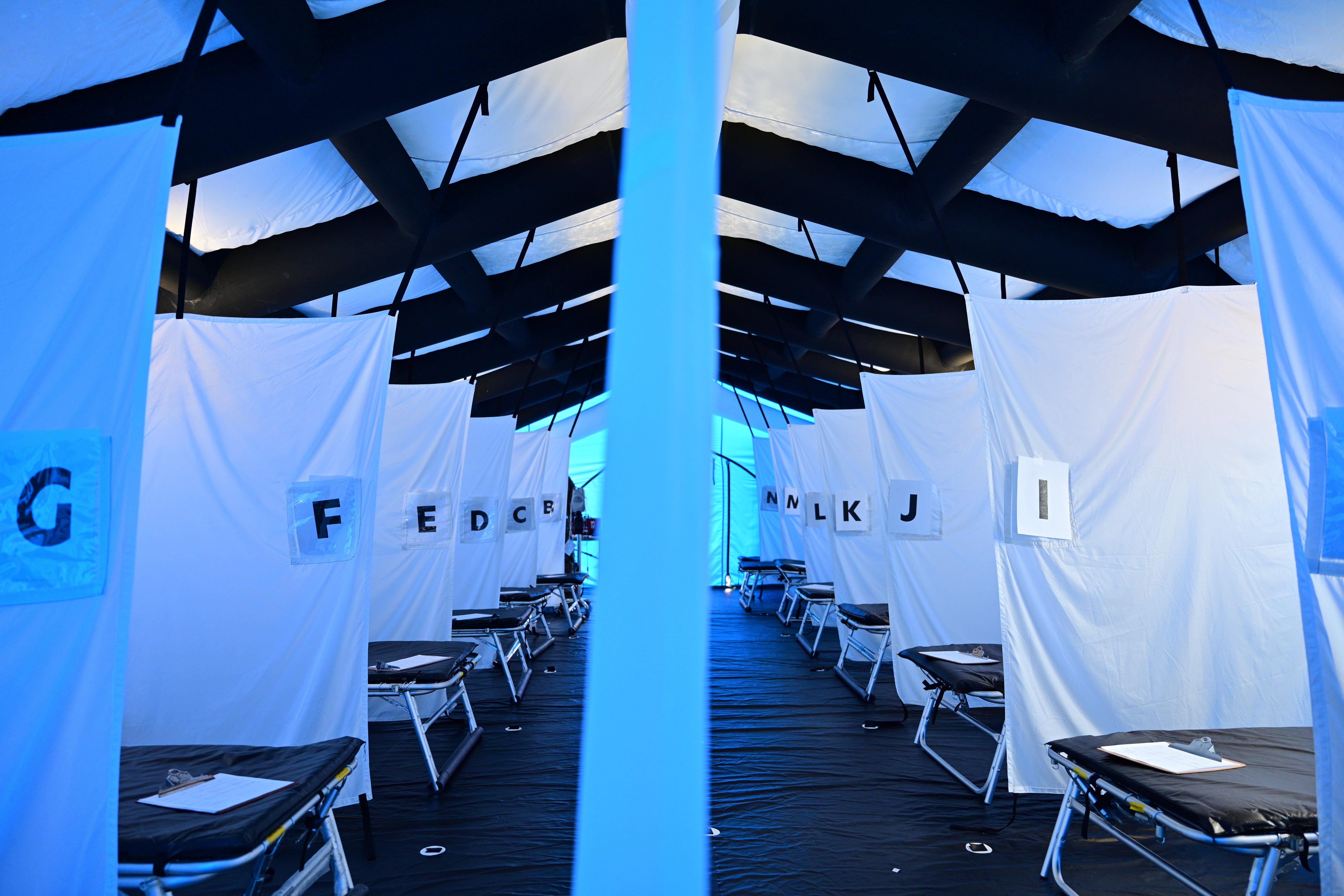Delta variant drives 15% increase in hospitalisations in just two weeks
The US is still averaging more than 1,000 cases per day due to the delta variant
Your support helps us to tell the story
From reproductive rights to climate change to Big Tech, The Independent is on the ground when the story is developing. Whether it's investigating the financials of Elon Musk's pro-Trump PAC or producing our latest documentary, 'The A Word', which shines a light on the American women fighting for reproductive rights, we know how important it is to parse out the facts from the messaging.
At such a critical moment in US history, we need reporters on the ground. Your donation allows us to keep sending journalists to speak to both sides of the story.
The Independent is trusted by Americans across the entire political spectrum. And unlike many other quality news outlets, we choose not to lock Americans out of our reporting and analysis with paywalls. We believe quality journalism should be available to everyone, paid for by those who can afford it.
Your support makes all the difference.As researchers scramble to better understand the recently emerged omicron coronavirus variant, the delta variant has continued to hammer the country, resulting in tens of thousands of hospitalisations.
According to a New York Times analysis, the US is averaging about 121,300 coronavirus cases daily, which is a 27 per cent increase over two weeks ago. Deaths have also increased by 12 per cent, with an average of 1,275 deaths a day.
The majority of the infected have been and remain people who have rejected the available coronavirus vaccines. The continued onslaught of patients has burned out healthcare workers and has resulted in some hospitals turning away patients due to lack of beds.
Challenges are not exclusive to areas with low vaccination rates. In Maine, where vaccination rates are higher – 73 per cent of its population is fully vaccinated – the case number recently hit its pandemic peak.

Governor Janet Mills activated the National Guard to help support healthcare facilities and to administer emergency doses of monoclonal antibodies in those with infections.
“I do not take this action lightly,” Ms. Mills said in a statement. “But we must take steps to alleviate the strain on our health care system and ensure care for all those who need it.”
Healthcare workers have been working seemingly non-stop since the pandemic began in 2020, leading to a mass exodus of workers from the field. Those who remained have been left to care for an "unprecedented numbers" of patients.
Healthcare workers have grown increasingly more frustrated by those who refuse to take the coronavirus vaccines, leaving themselves vulnerable to the virus's worst symptoms.
In Illinois, the situation has apparently gotten so bad that a Democratic state lawmaker has proposed legislation that would force patients to pay for their coronavirus medical bills out of pocket if they refused to take the vaccine.
“A person who is eligible to receive a COVID-19 vaccine and chooses not to be vaccinated shall pay for health care expenses out-of-pocket if the person becomes hospitalized because of COVID-19 symptoms,” the bill, proposed by Illinois state Representative Jonathan Carroll, says.
Mr Carroll said those have refused the vaccine are "not doing their part" to help end the pandemic.
“We’re in a world where covid is going to be here for a bit, and those who aren’t doing their part are creating new variants and continuing to spread the disease,” he said. “We’ve tried so many different incentives and conversations to get people vaccinated, but people aren’t listening. And there is a potential consequence to that personal choice.”

Join our commenting forum
Join thought-provoking conversations, follow other Independent readers and see their replies
Comments